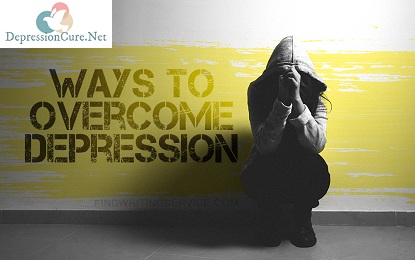Joker Film Made People Aware Of These 5 Types Of Mental Health
The Joker film, released recently, is in the news these days. The special thing about the Joker film is its character Joker who laughs at the people and people are happy to see him, but the hidden feelings behind him are difficult to understand.
This character is played by Joaquin Phoenix in the movie Todd Phillips’ Joker (2019). As soon as the release of the film, twists started coming in about it and how the character of the Joker movie has understood the dynamics of mental illness. It is also being talked about everywhere.
The image of Joaquin Phoenix has been a method actor for a long time, but the film “Joker” has taken his work to a new high.
The actor has reportedly weighed in at 20-25 kg to play the lead character, which did more than give him a horrifying look – it also affected his mental health.
Joaquin Phoenix told People magazine that “As it turns out, [losing more weight] affects your psychology, and you start going crazy when you lose so much weight in such a short time Huh.
Phoenix said the severe weight loss gave him “a disorder”, making him very sensitive about food and weight, which led him to retreat from social events and interactions with people and only downstairs.
They used to get tired even climbing. One expert said that these symptoms are serious, even fatal, serious symptoms of an eating disorder.
The film Joker talks about some such 5 mental illnesses:
Tourette’s syndrome: Tourette’s syndrome is a disorder in which a human repeats the same thing repeatedly, which is difficult to control.
Such as blinking eyes repeatedly, moving your shoulders, laughing repeatedly, making unusual sounds, or using offensive words. Joaquin Phoenix, who plays the lead role in the Joker film in many places, laughs at all, which is a scary moment in itself.
Turret seizures, called ticks, typically appear between the ages of 2 and 15, on average, around the age of 6. Men are three to four times more likely than women to develop Tourette’s syndrome.
Although there is no cure for Tourette’s syndrome, treatments are available. Many people with Tourette syndrome do not need treatment if their symptoms are not disturbing. After an age, the ticks often subside or become controlled.
Schizophrenia:
It is a mental illness whereby a person suffering from real and imaginary objects forgets to live and is lost and lost.
Around 23 million people around the world have been affected by this mental illness called schizophrenia. It becomes very difficult for the patient suffering from this problem to work, study, or interact socially.
However, schizophrenia is not as common as other mental illnesses, and its symptoms can be very different.
People with schizophrenia require lifelong treatment. Early treatment can help control symptoms before the onset of serious problems and can help improve it for the future.
After watching the film, people had different reactions to it and people also shared their reactions on Twitter.
JOKER | the perfect depiction of how cruel the worlds towards marginalizing group & what happens when (yes, society) does not take mental illness seriously. It tackles how deep & far you can fall due to mental health. did you want superheroes? fighting scenes? this movies is not for u then
? ??- kay (@joaqnphoenix) October 4, 2019
Dissociative Identity Disorder:
Dissociative Identity Disorder (DID) was previously known as Multiple Disorder. People with Dissociative Identity Disorder develop one or more personalities that function separately with or without the individual’s general personality.
Dissociative Identity Disorder (DID) is a problem with a group called Dissociative Disorder. Dissociative disorders are a mental illness that has a direct impact on awareness, recognition, and / or perception, from the breakdown of memories.
When one or more of these tasks are mildly obstructive, then symptoms of dysociability start appearing. These symptoms may subside initially, but they can be so severe where they can interfere with a person’s normal functioning, personal life, and work.
Psychosis:
Most people consider Psychosis to take a break from the world and somewhere it means here too.
Psychosis is known as a blockage in a person’s thoughts and perceptions which makes it difficult for them to identify what is real and what is not.
These interruptions are often experienced as seeing, hearing, and believing things that are different or slightly strange from reality, and which are not accompanied by common thoughts, behaviors, and feelings. Psychosis is a symptom, not a disease, and it is more common than you might think.
Psychosis can have different symptoms, but usually, it has two main symptoms:
Hallucinations are seeing, hearing, or feeling things that are not around you, such as:
- Hearing different voices (Auditory hallucinations)
- Strange sensations or precious feelings
- Getting a glimpse of things or people that are not there.
Delusions are such strong beliefs that are not by the person’s culture, which are unlikely to be true and which may seem irrational to others, such as:
- Believing that external forces can control thoughts, feelings, and behaviors.
- Assuming trivial observations, events, or objects have personal meaning or significance.
- To think that you have special powers, or you are on a special mission, or even you are God.
Post-traumatic stress disorder:
Post-traumatic stress disorder is a condition that is directly related to a traumatic or terrible event that occurs to the person. Such as sexual or physical harassment, a serious accident, unnatural death of a loved one, etc.
Such events have either been experienced by the person or he has seen it. Although physically such a person looks fine but mentally they are quite impaired.
A person suffering from this type of mental disorder is unable to recover from the terrible events that affect every aspect of his life for a long time.
While people shy away from hiding and talking about mental illness, blockbuster films like Joker have given people a platform to openly talk about mental health.
Note: Depression Cure does not provide any type of medical advice, diagnosis, or treatment.







